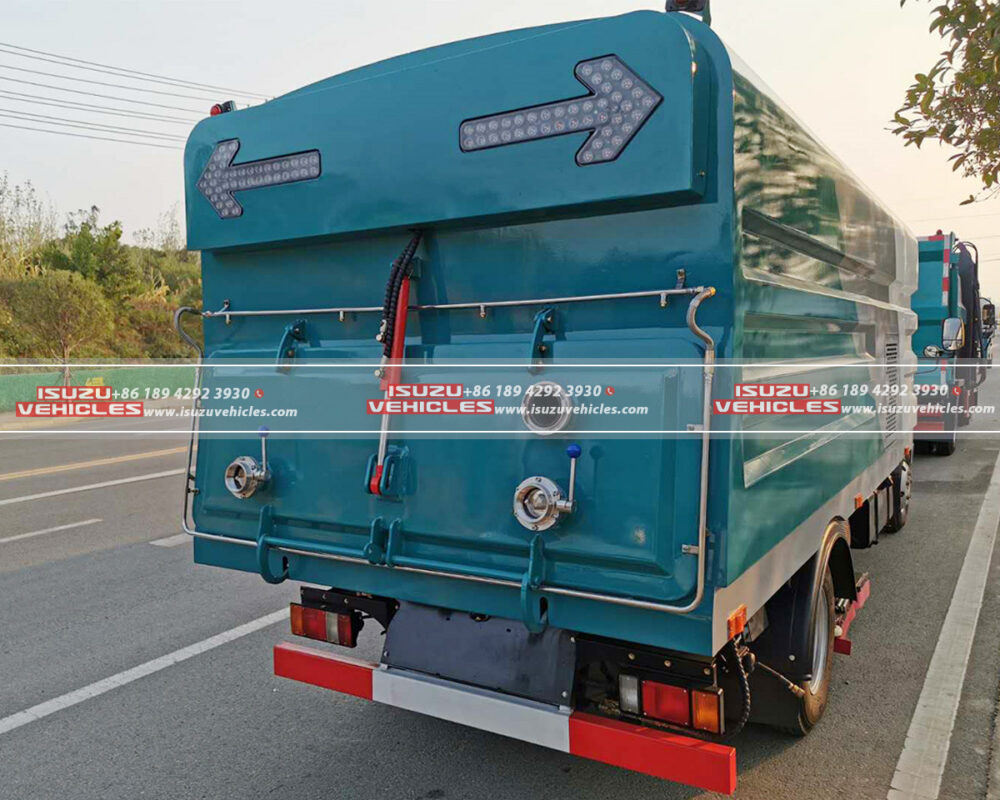Colombia’s ongoing efforts to modernize urban infrastructure and public health protections have received a significant boost with the arrival of a fleet of ISUZU vacuum trucks, engineered to address the country’s pressing sanitation challenges. Delivered as part of a $15 million investment in municipal services, these specialized vehicles will play a pivotal role in maintaining sewer systems, managing industrial waste, and mitigating flood risks in densely populated cities. The deployment aligns with Colombia’s National Development Plan, which prioritizes sustainable urban management and climate resilience, while complementing existing ISUZU garbage truck and ISUZU sweeper truck operations that handle solid waste and street cleaning.
1. Addressing Colombia’s Sanitation Challenges
Colombia’s rapid urbanization has strained aging sewer networks and drainage systems, particularly in cities like Bogotá, Medellín, and Barranquilla, where seasonal flooding and infrastructure limitations contribute to public health risks. The new ISUZU vacuum trucks are equipped to tackle these issues through targeted interventions:
Sewer System Rehabilitation
- High-pressure water jetting systems (3,500 PSI) to clear blockages from grease, sediment, and non-biodegradable waste in narrow pipes
- Industrial-grade suction (2,800 CFM airflow) capable of extracting 10 tons of sludge per hour from overwhelmed drainage networks
- CCTV inspection crawlers deployed via the trucks’ access ports to identify cracks and leaks in underground infrastructure
Flood Prevention and Disaster Response
- Rapid dewatering pumps that can remove 1,500 gallons of floodwater per minute during雨季 rains
- Hazardous material containment systems for safely managing chemical spills or biohazardous waste in industrial zones
Municipal authorities estimate the trucks will reduce sewer overflow incidents by 40% annually, directly impacting urban livability and reducing waterborne disease outbreaks in vulnerable communities.
2. Technical Advancements and Fleet Integration
The ISUZU vacuum trucks incorporate cutting-edge engineering tailored to Colombia’s diverse geographic and operational demands, ensuring seamless integration into the nation’s broader sanitation strategy.
Advanced Engineering for Urban Sanitation
Built on ISUZU’s FVR 34P chassis, these vehicles feature:
- 6WG1-TCG turbocharged engines optimized for high-altitude performance in Andean cities like Bogotá (2,600m above sea level)
- Corrosion-resistant aluminum tanks with 8,000-liter capacity, treated for resistance to acidic waste and coastal salt air
- Dual-function operation allowing simultaneous suction and high-pressure cleaning via independent hydraulic circuits
The trucks’ intelligent control systems enable operators to adjust suction power and water pressure in real time, with data logged for compliance reporting under Colombia’s environmental regulations.
Synergy with Existing ISUZU Fleet
The vacuum trucks join a comprehensive sanitation network that includes:
- ISUZU garbage trucks servicing 95% of Bogotá’s daily 6,500-ton waste output
- ISUZU sweeper trucks maintaining air quality by capturing 80% of street-level particulate matter in Medellín
A unified telematics platform now connects all three vehicle types, enabling:
- Predictive maintenance alerts based on shared engine performance data
- Route optimization to coordinate sewer cleaning with garbage collection schedules
- Public transparency portals displaying real-time updates on sanitation metrics
This integration has already reduced overlapping routes in Cali by 25%, lowering fuel costs and emissions.
As Colombia accelerates its $4.7 billion Urban Renewal Initiative, the ISUZU vacuum trucks exemplify how targeted technological investments can transform public health outcomes. By addressing both chronic infrastructure deficits and emergency response needs, these vehicles reinforce ISUZU’s role as a cornerstone of Colombia’s sustainable development—proving that advanced engineering and strategic fleet management are key to building cleaner, safer cities.
